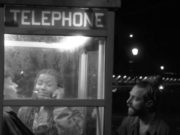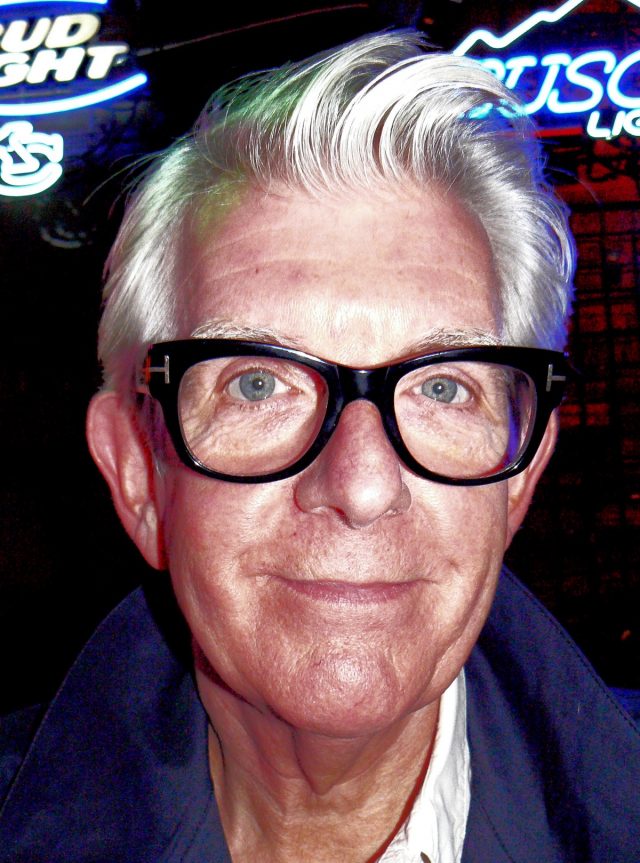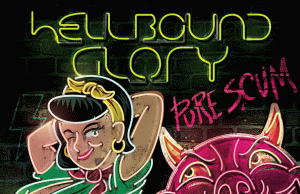Back in 2002, I was lucky enough to chat with the one and only Nick Lowe, who turned out to be just as witty and charming as you would expect. Since it’s the veteran singer-songwriter, producer and Rockpile member’s birthday on Wednesday, it seemed like a fine time to dig this long-lost interview out of the files. The bad news: I no longer have the full transcript of our conversation — which included some talk about Rockpile, his vast back catalogue and his next-door neighbour Robyn Hitchcock — so I can’t give you a full Q&A. The good news: His last few quotes have thankfully come true. Enjoy:
Some might say the music business has been cruel to Nick Lowe. But if you ask him, it’s been more than kind.
“I can’t really complain too much,” affirms the British pop legend down the line from his London home. “On the whole, I would have to say I’ve been rather fortunate. I have a following — it’s not a large following, but it’s a very small, loyal following. I earn a very good living. I can buy a shirt or take someone to dinner without having to worry about that sort of thing. I have retained enough of my privacy so that I don’t get hordes of people pointing at me in the street. And overall, I’m really quite content with my position in the panoply of music.”
He should be. In his three-decade career, the erudite, unpretentious musician has put together a resume few could match. As a performer — both on his own and with ’80s roots-pop outfit Rockpile — he scored hits such as Teacher, Teacher, Heart, So it Goes and his signature song Cruel to Be Kind. As a producer for seminal British punk label Stiff Records, he presided over early sessions by Elvis Costello, The Damned, The Pretenders and Graham Parker. And as a songwriter, he’s had his work covered by everyone from Rod Stewart to former father in-law Johnny Cash — and even pocketed a cool million from Curtis Stigers’ jazzy cover of (What’s so Funny ’Bout) Peace, Love and Understanding? on the 1992 Bodyguard soundtrack.
Of course, that was then and this is now. Times have changed, trends have come and gone, and even Lowe admits he’s hardly a household name any more. “The other day I had to go to this very fancy studio to go and pick up the tapes of my last album,” he confides. “I turned up and presented myself and this kid came out and said, ‘Who are you?’ I told him. And he said, ‘What’s the name of the artist?’ I thought, that’s the sign of the times right there.”
But far from lamenting his, er, low profile, Lowe embraces it. “The last thing I want is to be hugely successful,” he says seriously. “When I was really quite young, I got a sudden and severe look at what being famous was like and it completely did me in. It’s something I don’t want to have happen to me ever. In fact, if it looked like it was going to happen, I would take drastic steps to keep it from occurring.”
To that end, he turns down most of the work he’s offered, especially anything that smacks of nostalgia. “That sort of turning up and having people kind of relive their youth through you is revolting, somehow. I really have no interest in it whatsoever. It’s bloody rubbish. Besides, it’s always better to bide your time. Paradoxically, the more you turn people down, the more offers you get and then something cool comes along.” Meanwhile, he enjoys the luxury of being able to work at his own pace, contributing occasional tracks to compilations and soundtracks and putting out the occasional album like 2001’s gorgeous roots-pop ballad set The Convincer.
“To be honest, I’m in a state of semi-retirement,” he says. “Generally, writing songs for other people is how I make my living now. For example, I just wrote a song for the new Solomon Burke album. I don’t do any producing any more. I got fed up and gave it up when it turned into staring at a computer screen instead of making music. And I hardly do any touring at all either. It’s not that I don’t love doing the gigs — it’s just the other 22 hours of the day that I find hard to deal with. These days, I’m too wussy for the sticky-floored rock clubs but I’m too rocking for folk … And there are some songs from the old days that I can’t do anymore, because they’re too callow. I don’t want to say what they are, because I don’t want to disappoint people. But really, my musical taste is more middle-aged these days.”
Then again, so is he. And happily so. “I think getting older has suited me. I mean, I do feel my age, but I don’t feel like I thought I was going to feel. I feel like I’m just starting to get the hand of this songwriting thing,” he cracks. “I don’t think I’ve peaked yet. When I was younger, I looked up to older artists because they had a sort of lived-in thing that appealed to me. I always wanted to be older. By the time I’m 70, I think I’ll be fantastic. I’m looking forward to being a groovy old geezer.”
And why not? After all, there’s no reason nature should be any less kind to Nick than music as been.





































